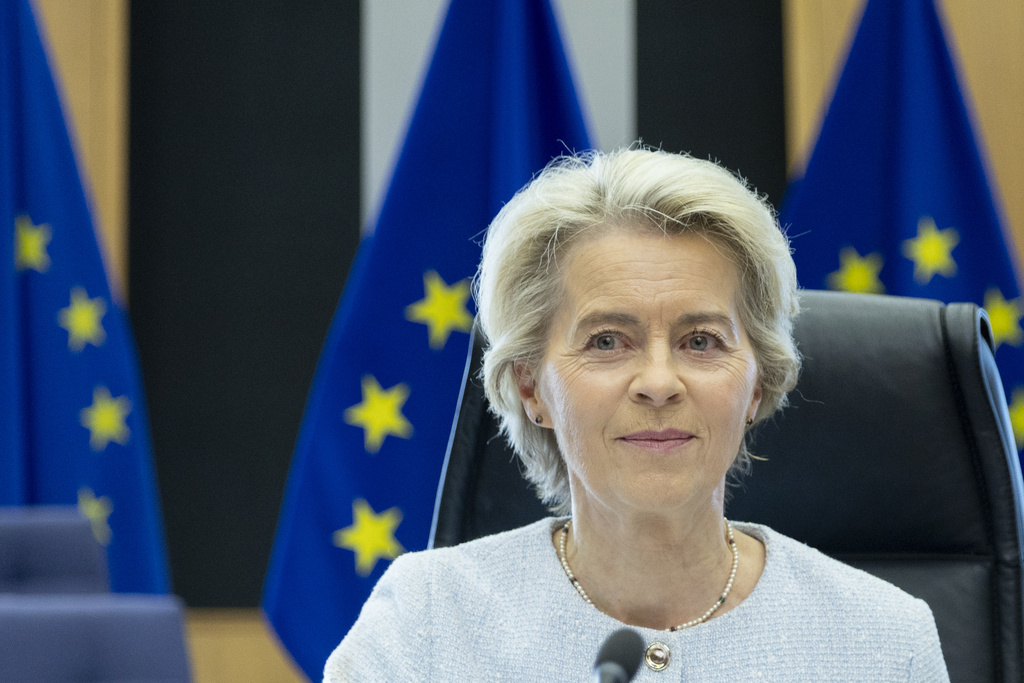Poland’s Piotr Serafin will probably take over as EU commissioner for budget on Dec. 1, but the president of the European Commission is already organizing his most important task: the draft EU budget for 2028-34. The document, seen by Polish media outlet Rzeczpospolita shows that the German, Ursula von der Leyen, wants to dismantle regional policy across the EU, which will have a profound effect on Poland.
The money that is currently given to the regions, and largely managed by them (two-thirds of EU structural funds), would be given instead to the governments of the member states. These governments would then divide it as they saw fit, allowing for more centralization and control, a move that would better suit a Brussels looking to expand its control through a top-down approach.
Instead of the 530 currently operating programs (including 398 concerning cohesion policy), Ursula von der Leyen proposes 27 national operational programs. Each such program will include all expenditures that have so far made up cohesion policy and agricultural policy, including even subsidies for farmers. The programs will be divided into sectors, e.g., transport, energy, agriculture, or internal affairs and migration — all under the slogan of simplification. The second slogan repeated by von der Leyen is “flexibility.” She wants to introduce the principle of an “annual review” of the multiannual budget, which she argues will increase flexibility. Money allocated to one area could therefore be shifted to another purpose if necessary.
Experts who spoke to Rzeczpospolita unofficially have no doubt that this proposal means the elimination of regional policy, which von der Leyen clearly does not like, which is more control for rural areas on how funding is spent with these rural areas often leaning more conservative.
The end of EU regional policy
Why is this dangerous? In such a scenario, the liberal elite in Brussels could win every time. First, when the central government is of a different political color than the local government, the distribution of EU funds can be an element of rewarding its party allies.
Let’s imagine a situation where Poland’s Law and Justice (PiS) returns to power and does not transfer money to voivodeships or cities governed by PO. However, in such a scenario, Brussels could turn around and cut funding to Poland if it disagrees with PiS’ policies. In the event that a left-liberal government carries out such actions, it could simply look the other way and allow funds to continue to flow.
Von der Leyen also wants the payment of money to be on the condition of reforms at the central level, even if the regions have nothing to do with the lack of reforms. Finally, the transfer of competencies to the central level means that many regions will not have coherent investment programs.
For decades, the EU has been building a regional policy based on the principle of convergence, or raising the level of development of poorer areas. It had a developed methodology, instruments for negotiating programs with governments and regions, and criteria for granting money. The aim of such a policy was also to bring the EU closer to its citizens: local authorities were involved in writing operational programs and the effects of EU money were visible on the ground.
Now, von der Leyen proposes throwing this policy in the trash and introducing a transactional method: the government carries out reforms and, in return receives money and divides it between sectors.
Ursula von der Leyen’s revolution a problem for Poland. Local authorities fear centralization
“We urgently need new investments and solutions, and therefore funds, available quickly, easily and flexibly at the levels where they occur, i.e. at the level of municipalities and counties, to the extent adapted to their needs,” said Hanna Zdanowska, mayor of Łódź, member of the European Committee of the Regions, during an interview with Rzeczpospolita.
“Centralization or nationalization of cohesion policy in times of an ongoing global political crisis can become a very dangerous trap,” she added.
Many EU countries may like such a reform.
“We like it,” a diplomat from one of the net-contributor countries tells Rzeczpospolita. According to him, this limits Serafin’s scope of action.
“He is very competent, but he will have to move within the limits set by von der Leyen,” he adds.
Strict control over Polish commissioner Piotr Serafin
The new plan by the German EU commission president gives direct supervision over the draft budget to herself and the secretary-general of the European Commission, who is an official completely dependent on von der Leyen. In short, the new budget proposal would increase her power immensely.
The document provides for the creation of a steering committee, in which, in addition to Serafin, two people will be mentioned.
Von der Leyen’s plan will certainly not appeal to several member states with a strong regional voice, such as Poland, Germany, Romania, or Belgium. It will also certainly be contested by many MEPs, who may demand commitments from the commissioners-designate (including the Italian Raffaele Fitto, responsible for cohesion policy) as early as November.






